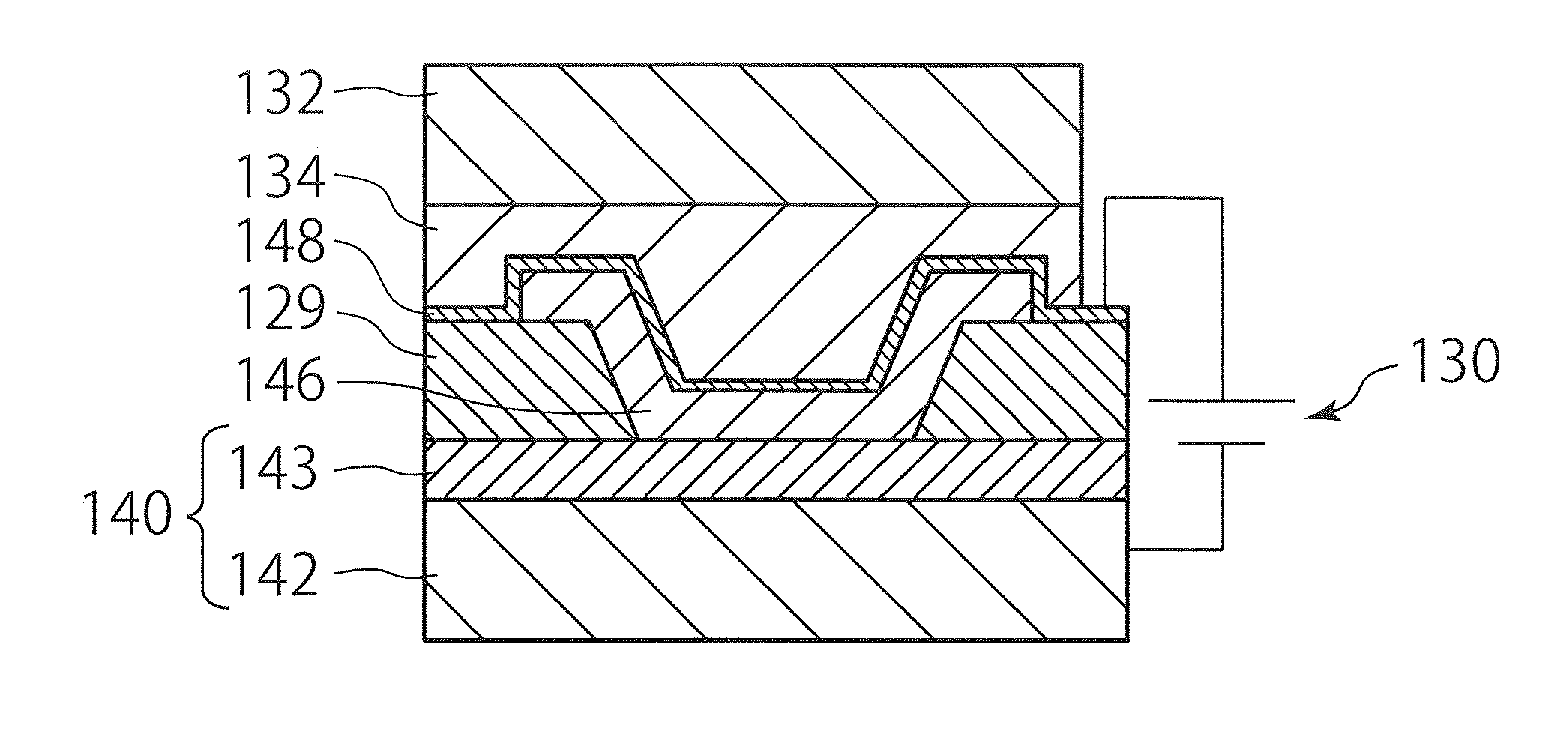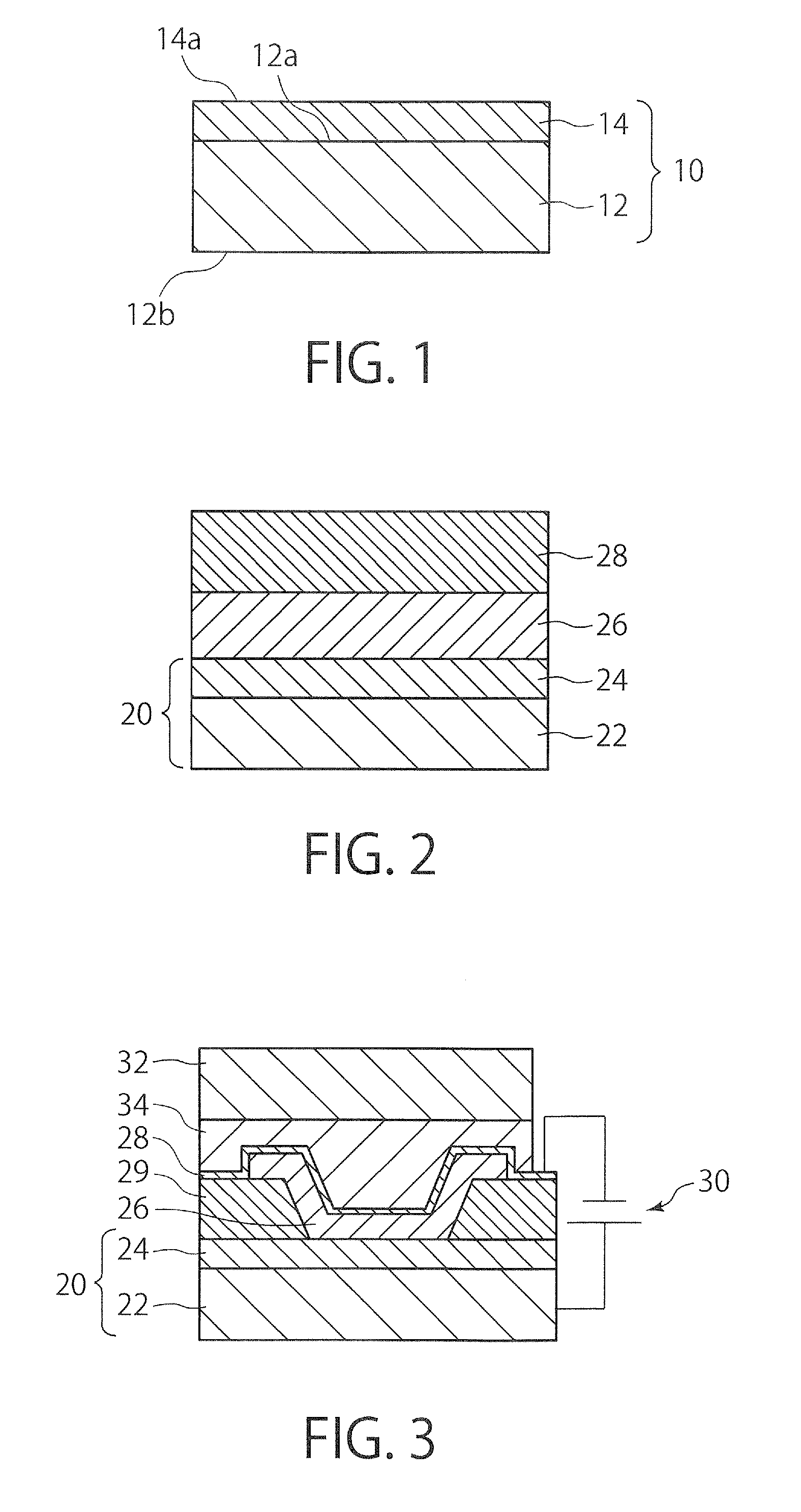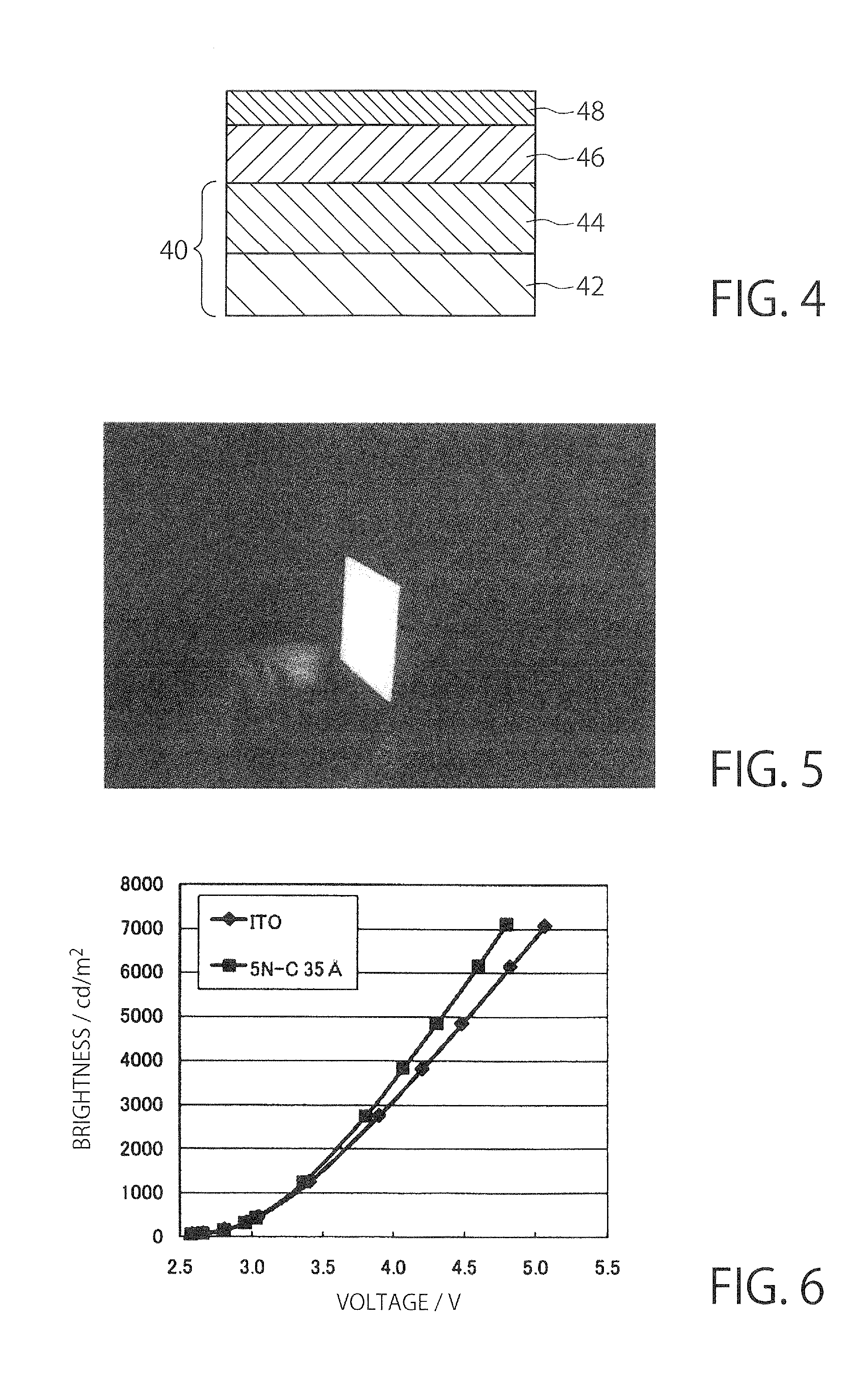Electrode foil and organic device
a technology of electrodes and foils, applied in the field of electrodes, can solve the problems of low heat resistance and barrier performance, low thermal conductivity, and low material cost, and achieve the effect of superior thermal conductivity
- Summary
- Abstract
- Description
- Claims
- Application Information
AI Technical Summary
Benefits of technology
Problems solved by technology
Method used
Image
Examples
example 1
Preparation of Cu / Al-Alloy / ITO Electrode Foil
[0068]As a metal foil, 64-μm-thick commercially available both-side-flat electrolytic copper foil (DFF (Dual Flat Foil), manufactured by Mitsui Mining & Smelting Co., Ltd.) was prepared. The surface roughness of the copper foil was measured with a scanning probe microscope (Nano Scope V, manufactured by Veeco Instrument Inc.) in accordance with JIS B0601-2001, resulting in an arithmetic average roughness Ra of 12.20 nm. This measurement was performed in an area of 10 μm square using a Tapping Mode AFM.
[0069]The copper foil was subjected to CMP (Chemical Mechanical Polishing) treatment with a polishing machine manufactured by MAT Inc. This CMP treatment was performed by using a polishing pad having XY grooves and a colloidal silica polishing liquid under the conditions of pad rotation speed of 30 rpm; load of 200 gf / cm2; and liquid supply rate of 100 cc / min. The copper foil thus treated with CMP was subjected to measurement of the surface ...
example 2
Preparation of Cu / Al-Alloy / C Electrode Foil
[0072]An electrode foil was prepared in the same manner as in Example 1 except that a carbon buffer layer with a thickness of 1.7 nm or 3.5 nm was formed by sputtering in place of the ITO buffer layer. As a carbon target for the sputtering, two types of carbon targets were prepared including a non-treated carbon target with a purity of 3N (99.9%) made from a carbon material (IGS743, manufactured by Tokai Carbon Co., Ltd.); and a carbon target having a purity of 5N (99.999%) made from the above carbon material through purification treatment with a halogen gas. By using each of these targets, the carbon buffer layer was formed by sputtering. This sputtering was performed under the conditions of input power (DC) of 250 W (0.8 W / cm2); ultimate vacuum of lower than 5×10−5 Pa; sputtering pressure of 0.5 Pa; Ar flow rate of 100 sccm; and substrate temperature at room temperature, after mounting each carbon target (203.2 mm diameter and 8 mm thick)...
example 3
Preparation of Cu / C Electrode Foil
[0073]An electrode foil having a carbon buffer layer was prepared in the same manner as in Example 2 except that the Al alloy reflective layer was not formed. The surface roughness of the buffer layer thus obtained was measured in the same manner as in Example 1, resulting in an arithmetic average roughness Ra of 1.42 nm. The total thickness of the resulting electrode foil was 48 μm.
PUM
| Property | Measurement | Unit |
|---|---|---|
| arithmetic average roughness | aaaaa | aaaaa |
| arithmetic average roughness | aaaaa | aaaaa |
| thickness | aaaaa | aaaaa |
Abstract
Description
Claims
Application Information
 Login to View More
Login to View More - R&D
- Intellectual Property
- Life Sciences
- Materials
- Tech Scout
- Unparalleled Data Quality
- Higher Quality Content
- 60% Fewer Hallucinations
Browse by: Latest US Patents, China's latest patents, Technical Efficacy Thesaurus, Application Domain, Technology Topic, Popular Technical Reports.
© 2025 PatSnap. All rights reserved.Legal|Privacy policy|Modern Slavery Act Transparency Statement|Sitemap|About US| Contact US: help@patsnap.com



